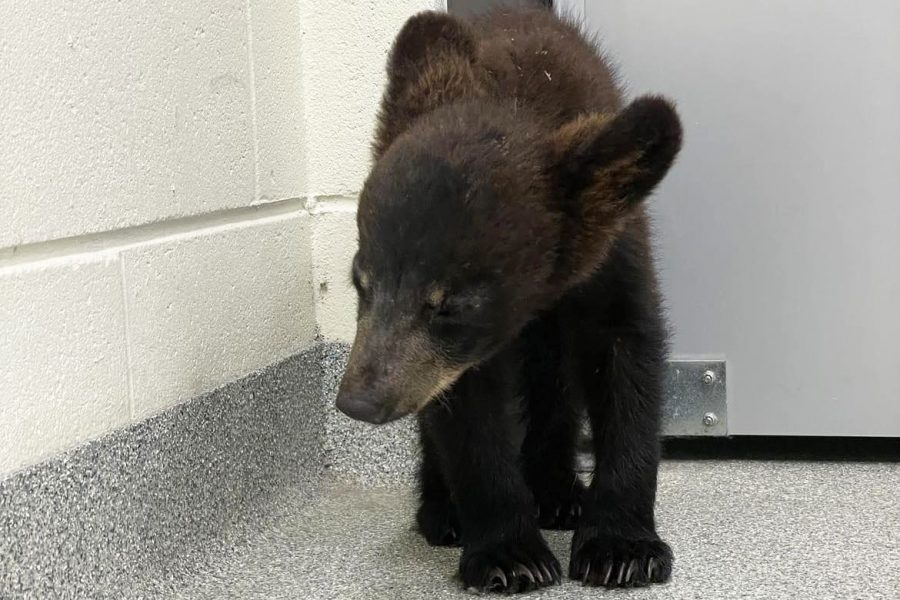Summary of Caring for Florida Black Bear Cubs:
In collaboration with the Florida Fish and Wildlife Conservation Commission, the Brevard Zoo has started providing temporary medical and nutritional care to Florida black bear cubs in need. The cubs will be housed in the zoo’s L3 Harris Animal Care Center and have limited contact with people to maintain their natural caution. The goal is to rehabilitate the cubs and return them to their natural range. The zoo recently cared for a young female cub found without her mother and successfully treated her for pneumonia. The cub has been rehabilitated to Homosassa Spring Wildlife State Park before being released back into the wild. The park provides a space for orphaned bear cubs to be cared for with minimal human contact. The ultimate aim is to ensure the cubs do not become dependent on humans for food. The Brevard Zoo is proud to use its expertise in caring for Florida black bear cubs to support the species in their natural habitat. As an independent organization, the zoo relies on generous support to continue its important animal wellness, education, and conservation programs.
Summary:
– Brevard Zoo provides temporary medical and nutritional care to Florida black bear cubs in need in collaboration with the Florida Fish and Wildlife Conservation Commission.
– The cubs will be housed in the zoo’s Animal Care Center to minimize human contact and maintain their natural caution.
– The ultimate goal is to return the cubs to their natural range.
– One young female cub, found without her mother, was recently cared for by the zoo and transferred to Homosassa Spring Wildlife State Park for further rehabilitation.
– The park provides off-habitat space for orphaned bear cubs, ensuring minimal human contact, and aims to release them in areas with ideal bear habitats.
Caring for Florida Black Bear Cubs
To support the rehabilitation journey of Florida black bear cubs, Brevard Zoo has taken on the responsibility of providing temporary medical and nutritional care to these young and vulnerable animals. Collaborating with the Florida Fish and Wildlife Conservation Commission, the zoo is committed to giving these cubs the best chance to return to their natural range and thrive in the wild.
Unlike the other rescued bears housed in the Wild Florida loop, the black bear cubs will be kept away from public view. They will reside in the zoo’s L3 Harris Animal Care Center, where minimal contact with people will be maintained. This step is crucial in ensuring that the cubs retain their natural caution around humans, essential for their future survival in the wild.
The veterinary team at Brevard Zoo is well-equipped to handle complex cases, ensuring that the cubs receive the medical attention they require. The animal care team also has experience caring for small cubs, including providing supplemental feeding when necessary. This specialized care allows the cubs to recover and grow, priming them for their eventual reentry into their natural habitat.
Let’s take a moment to highlight the story of one of these cubs. A young female cub was rescued after being found without her mother in a waste facility in Okahumpkah, Florida. At just 8 pounds, she was significantly underweight for her estimated age of 6½ months. Typically, cubs of her age should weigh between 25 and 45 pounds.
Upon arrival at Brevard Zoo, the cub was treated for pneumonia and given the needed nourishment. Nearly two weeks, under the attentive care of the zoo staff, she nearly doubled her weight. This remarkable improvement enabled the cub to be transferred to Homosassa Spring Wildlife State Park, where she will be rehabilitated.
Homosassa Spring Wildlife State Park is a temporary home for orphaned black bear cubs who cannot survive independently. The park provides off-habitat spaces, minimizing interaction between the cubs and humans. This approach is crucial in preventing the cubs from becoming conditioned to seek good from people, which can harm their long-term survival in the wild.
To ensure the best chances of success, the cubs are released in December, and there are few other bears in the area chosen for their reintroduction. This strategy aims to reduce potential conflicts and allow the cubs to establish themselves and adapt to their surroundings without competition.
The Brevard Zoo team remains optimistic about the future of these black bear cubs. Through their expertise and dedication, they aim to support this endangered species and contribute to its conservation efforts. By caring for these cubs and preparing them for their return to their natural habitat, the zoo plays an instrumental role in the survival of Florida black bears.
It is important to note that Brevard Zoo is an independent, nonprofit organization that relies on the support and generosity of the community. Without recurring government funding for operating costs, they rely on donations and contributions to continue their crucial animal welfare, education, and conservation programs. Your support can make a significant difference in the lives of these bears and many other species under the care of the zoo.
By coming together and supporting organizations like Brevard Zoo, we can ensure the continued preservation of our wildlife and the ecosystems they inhabit. Together, let’s positively impact the world around us and secure a future where nature and wildlife thrive.


